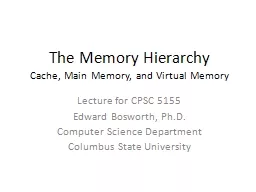PPT-Memory Loss
Author : mitsue-stanley | Published Date : 2017-12-23
amp The GP Marijke Boers Church St Surgery April 2017 Role of the G P Is this NORMAL age related memory loss ORSomething Else REFERENCE Having a Senior Moment
Presentation Embed Code
Download Presentation
Download Presentation The PPT/PDF document "Memory Loss" is the property of its rightful owner. Permission is granted to download and print the materials on this website for personal, non-commercial use only, and to display it on your personal computer provided you do not modify the materials and that you retain all copyright notices contained in the materials. By downloading content from our website, you accept the terms of this agreement.
Memory Loss: Transcript
Download Rules Of Document
"Memory Loss"The content belongs to its owner. You may download and print it for personal use, without modification, and keep all copyright notices. By downloading, you agree to these terms.
Related Documents














